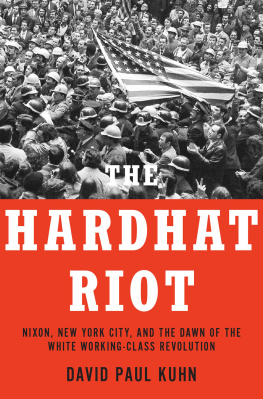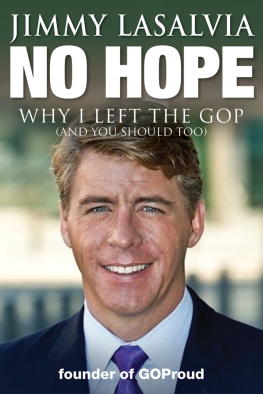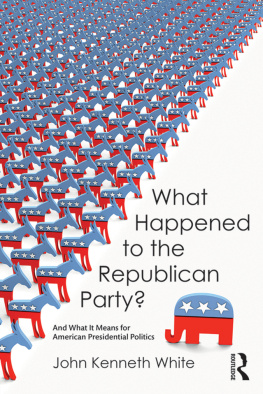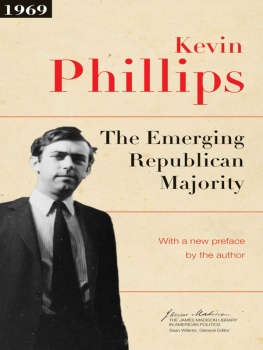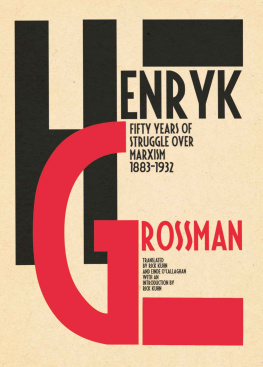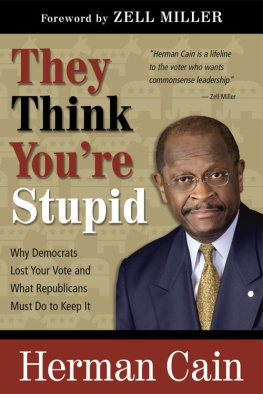THE NEGLECTED
VOTER
THE NEGLECTED
VOTER
WHITE MEN AND
THE DEMOCRATIC DILEMMA
DAVID PAUL KUHN

The author and publisher have provided this e-book to you for your personal use only. You may not make this e-book publicly available in any way. Copyright infringement is against the law. If you believe the copy of this e-book you are reading infringes on the authors copyright, please notify the publisher at: us.macmillanusa.com/piracy.
THE NEGLECTED VOTER
Copyright David Paul Kuhn, 2007.
All rights reserved. No part of this book may be used or reproduced in
any manner whatsoever without written permission except in the case of
brief quotations embodied in critical articles or reviews.
For information, address St. Martins Press, 175 Fifth Avenue, New York, N.Y. 10010.
First published in 2007
by PALGRAVE MACMILLAN
175 Fifth Avenue, New York, N.Y. 10010 and
Houndmills, Basingstoke, Hampshire, England RG21 6XS.
Companies and representatives throughout the world.
ISBN-13: 9780230610866
ISBN-10: 0230610862
Our eBooks may be purchased in bulk for promotional, educational, or business use. Please contact the Macmillan Corporate and Premium Sales Department at 1-800-221-7945, ext. 5442, or by e-mail at .
Library of Congress Cataloging-in-Publication Data
Kuhn, David Paul.
The neglected voter: white men and the Democratic dilemma / by
David Paul Kuhn.
p. cm.
Includes bibliographical references and index.
1. ElectionsUnited States. 2. VotingUnited States.
3. Political participationUnited States. 4. Men, WhiteUnited
StatesAttitudes. 5. Sex rolePolitical aspectsUnited States.
I. Title.
JK1965.K84 2007
324.973'092dc22
2007010326
A catalogue record of the book is available from the British Library.
Design by Letra Libre, Inc.
10 9 8 7 6 5 4 3 2 1
To my father, Robert M. Kuhn
CONTENTS
White Male and Female Presidential Voting 1948-2004*grey column represents the White Male Gap.
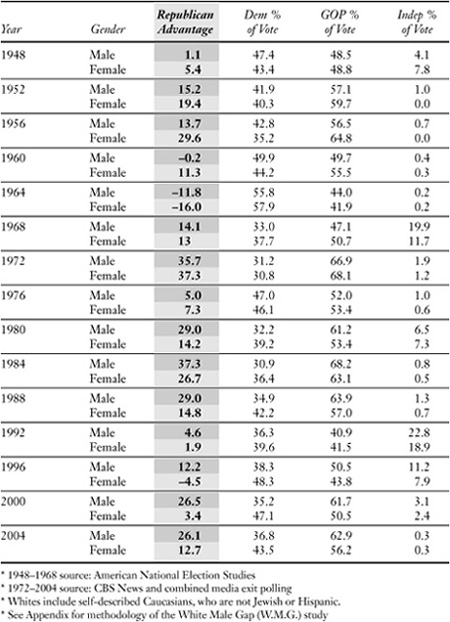
INTRODUCTION
THE WHITE MALE GAP
Ronald Reagan was once a Democrat, like the white men who followed him to the Republican Party. As Franklin Delano Roosevelt ran for the presidency, Reagan returned home to Dixon, Illinois, a 21-year-old college graduate. It was 1932 and twelve million Americans were jobless. "A job, any job, seemed like the ultimate success," Reagan recalled.
Six presidents later, with the United States suffering another economic downturn, Reagan won the White House by sundering the very coalition Roosevelt had built. His election marked the arrival of the modern Republican majority, a majority built on the ballots of white men who still called themselves Democrats but no longer saw their future in liberalism. At the very time Democrats were reaching out to all others, white men found in Reagan a future that could be theirs. Reagan won 61 percent of white male voters in 1980, and with them, he won the Republican Party's future. Four years later, he garnered 68 percent of the white male vote. The Democrats won only 32 and 31 percent of white men in 1980 and 1984 respectively. In every presidential election thereafter, Democrats never won more than 38 of every 100 white men who voted. No factor has been more instrumental in causing the Democratic decline in presidential politics than the loss of white men. Never again did Democrats win the male vote overall. Soon, Republicans seemed to own masculinity itself. The White Male Gap had arrived.

The United States remains the only nation in the western world where the conservative party consistently wins the vote of the workingman, poor and middle class alike. Imagine Britain's Labour Party, over a period of decades, losing the majority of men in the working-class neighborhoods of Manchester or Birmingham. Imagine it as a trend reaching back to Winston Churchill, emerging with the rise of Margaret Thatcher, and continuing unimpeded beyond the government of Tony Blair. The idea is absurd. Yet exactly that has occurred in the United States.
Between Harry Truman's narrow victory in 1948 and George W. Bush's victory in 2004, every strata of the white male vote shifted in the Republicans' favor. For the poorest third of Americans, white women's support for Democratic presidential candidates went up 3 percent. For white men in the same income bracket, there was a 25 percent decline! The much-discussed success of the GOP in reaching poor whites over the past half century is a story of men. Within the middle third of white Americans, the Democratic Party saw a decline of 15 percent among white females. But white men left Democrats at twice that rate. Their support for Democratic presidential candidates declined 29 percent between 1948 and 2004. A third of white middle-class men left the Roosevelt coalition in the past six decades. Even within the wealthiest third of whites, a group that is traditionally Republican, Democrats lost 6 percent of white men since 1948, while they earned the support of 3 percent more women.
However the polling is deciphered, the white male migration from liberal to conservative politics is the fundamental reason Republicans have won five of the last seven presidential elections.

After the 2004 election, Bruce Reed, president of the Democratic Leadership Council (DLC), was bothered by one fundamental fact: Despite a Republican tax policy that favored the wealthy, widening income gaps between the ultrarich and everyone else, corporate impropriety topping the news, and millions of job losses, Democrats lost 26 of the 28 states with the lowest per capita income. The Republican candidate won nineteen of the twenty states with the lowest median income.
The irony is palpable. Liberals believe they are standing up for the workingman, while the white workingman believes the culture of liberalism stands against him. Years after the DLC raised the first alarm in 2001 about the "white male problem," Reed is frustrated, if only because it took two decades to be noticed, and as the 2008 election nears, the loss of white men remains substantively ignored.
"Look," he tells me, "if we are losing the second largest demographic group in America by nearly two to one, we don't deserve to be a majority party! And we don't have to do that. You know, men are from Mars and women are from Venus, but a lot of them are married and live together in households with the same general interests and, as Clinton would say, part of it is just showing up."
There are second acts in American politics. The Democrats' revival depends on reconnecting with the voter they left behind. At midcentury, white men were the most loyal Democratic constituency. But as the party of Harry Truman and John F. Kennedy became the party of George McGovernas the counterculture rosemany white men felt they were now the liberal antagonists. As they left, so did the Democrats' presidential viability. By 1980, the GOP won the barbers, the lawyers, and the policemen. The Republican presidential era was born and Democrats kept pushing on, a new liberalism without the people to win back a majority.
Next page

